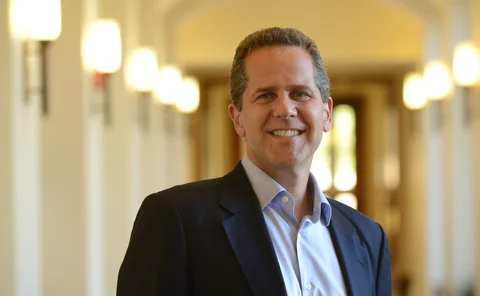Capital
Book notes: How low interest rates change the world, by Jesper Rangvid
This book investigates the possible causes of ultra-low interest rates, the problems low rates cause and the path of future rates
Only 5% of central banks reveal individual bank stress-test results
Respondents share details of how stress scenarios are developed
ECB study points out unevenness in EU capital rules
Current prudential framework generates “unwarranted heterogeneity” in banking union, authors argue
The Bank of England’s four pillars for a new CCP rule book
Executive director urges feedback on margin transparency, broader collateral and aiding innovation
The foundations of sovereign finance are quietly evolving
Digital settlement infrastructure is taking shape. Now SSA issuers must decide how, not whether, to participate, argues Domenico Nardelli
Elizabeth McCaul on supervision, new macro-dynamics and investing in suptech
Former ECB Supervisory Board member speaks about Covid-19 and Credit Suisse shocks, regulation debates, the rise of non-banks and what makes tech projects succeed
Will the UK’s FRTB time warp turn into a horror show?
UK regulator’s proposed transition year in 2027 could double banks’ implementation work
European banks resilient to shocks, EBA says after test
Lenders’ greatest vulnerability is credit risk but they can withstand adverse scenarios, regulator says
Book notes: Inflation, by Mark Blyth and Nicolò Fraccaroli
An accessible explainer about the narratives surrounding inflation – and who it benefits
European Commission already preparing next FRTB move
As EC runs out powers to delay rules again, proposal for temporary capital relief is on the agenda
Bank of England floats ‘quasi-IMA’ in FRTB standardised method
Dealers welcome new route to capitalising residual risk, but it could fragment global ruleset
US Fed urged to curb reliance on its own stress-test models
Original architect of DFAST says supervisors should stop putting all their eggs in one basket
Book notes: Making money work, by Matt Sekerke and Steve H Hanke
This book provides a critique of the post-crisis monetary and financial system, proposing changes that deserve to be broadly read
Consolidation likely among Nigerian lenders – analyst
Small lenders unlikely to meet CBN’s recapitalisation demands, says investment bank’s research head
Fed hears renewed calls for tuneup of G-Sib surcharge
Failure to revisit 2015 methodology has led to inflated systemic risk scores, experts say
Wholesale bank funding boosts policy transmission – paper
NBER study highlights trade-offs between reducing systemic risk and facilitating credit flow
Japan FSA’s Ariizumi on Basel delays and regulating AI
Outgoing international affairs chief issues rallying call for Basel III adoption, saying Japan has “kept its promise”
Barr slams weakening of bank supervisory tests
Fed governor warns deregulation during boom times ushers in crises
The battle for the future of central banks
Inflation-targeting institutions must not simply defend against overt interference, they must also resist a sly erosion of their authority, writes Biagio Bossone
Former OCC chief on the sting of peeling the Basel III ‘onion’
Michael Hsu warns successors not to cut bank capital or neglect rate risks that destroyed SVB
Central banks need common accounting standard – Honohan
Former Irish central bank governor calls for policy-makers to report portfolios at fair value
Most supervisors monitor banks’ exposure to non-banks
But majority do not apply Pillar 2 requirements specific to non-bank exposures
Boris Vujčić on Croatia’s economic journey, the digital euro and the Governing Council
The Croatian National Bank (HNB) governor speaks with Christopher Jeffery about managing financial risks, the pros and cons of euro adoption, payment system reform and the use of real-time data
Ex-OCC chief Michael Hsu on the impact of an America-first agenda
The former acting comptroller of the currency speaks with Christopher Jeffery about the future of the US Treasury market, Fed independence, financial de-regulation, the Genius Act and international co-operation























